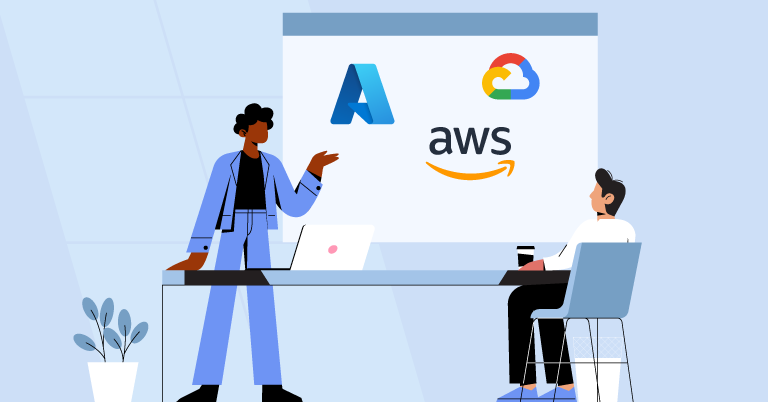Trading applications, essential for buying and selling financial instruments, demand high performance, security, and reliability. To ensure their quality and functionality, continuous testing and integration practices are employed. These practices detect defects early, reduce risks, and accelerate application delivery. Despite the benefits, challenges arise in managing the testing environment, scaling resources, controlling costs, ensuring security and privacy, and integrating with other tools. How do you navigate these challenges in your trading application development?
One of the solutions to these challenges is to use cloud-based tools and frameworks that enable continuous testing and integration of trading applications. Cloud-based tools and frameworks are services and solutions that are hosted and delivered over the internet, rather than on-premise or on local servers. Cloud-based tools and frameworks can offer some benefits and drawbacks for continuous testing and integration of trading applications, such as:
- Scalability: Cloud-based tools and frameworks can scale up or down the testing and integration resources, such as servers, storage, and bandwidth, according to the demand and workload of the trading applications. This can help to improve the performance and availability of the testing and integration processes, and to avoid over-provisioning or under-provisioning of the resources.
- Cost-effectiveness: Cloud-based tools and frameworks can reduce the testing and integration costs, by eliminating the need for expensive hardware, software, and infrastructure. Cloud-based tools and frameworks also offer flexible and transparent pricing models, based on usage and consumption, rather than fixed or upfront fees. This can help to optimize the testing and integration budget, and to pay only for what is used.
- Security and privacy: Cloud-based tools and frameworks can ensure the security and privacy of the testing and integration data, by using encryption, authentication, authorization, and auditing techniques. Cloud-based tools and frameworks also comply with various standards and regulations, such as PCI DSS, GDPR, and HIPAA, that govern the protection and handling of sensitive and personal data. However, cloud-based tools and frameworks also introduce some risks and challenges, such as how to prevent data breaches, how to manage data sovereignty, and how to deal with data loss or corruption.
- Integration: Cloud-based tools and frameworks can facilitate the integration with other tools and systems, such as code repositories, test management tools, defect tracking tools, and reporting tools, by using APIs, webhooks, and connectors. Cloud-based tools and frameworks can also enable the integration with other cloud services, such as data analytics, artificial intelligence, and machine learning, that can enhance the testing and integration capabilities and outcomes. However, cloud-based tools and frameworks also require some considerations, such as how to ensure the compatibility and interoperability of the tools and systems, how to monitor and troubleshoot the integration issues, and how to maintain the integration quality and consistency.
Some cloud-based tools and frameworks for continuous testing and integration of trading applications are:
- AWS CodePipeline: A service that automates the workflow of code changes from source to deploy, integrating with other AWS such as AWS CodeCommit, AWS CodeBuild, AWS CodeDeploy, and AWS Lambda and third-party tools. It offers scalability, cost-effectiveness, security, and integration features.
- Azure DevOps: A platform that provides a suite of tools and services for testing and integrating code changes, integrating with other Azure such as Azure Functions, Azure App Service, and Azure Monitor and third-party tools. It offers scalability, cost-effectiveness, security, and integration features.
- Google Cloud Build: A service that automates the building, testing, and deploying of code changes in the cloud, integrating with other Google Cloud such as Cloud Source Repositories, Cloud Functions, Cloud Run, and Cloud Monitoring and third-party tools. It offers scalability, cost-effectiveness, security, and integration features.
These are some of the ways that cloud-based tools and frameworks can enable continuous testing and integration of trading applications, and some of the benefits and drawbacks of using cloud services for testing and integration. Cloud-based tools and frameworks can help to overcome some of the challenges and leverage some of the opportunities of continuous testing and integration of trading applications, by offering scalability, cost-effectiveness, security, and integration features. However, cloud-based tools and frameworks also require some considerations and trade-offs, such as how to prevent data breaches, how to manage data sovereignty, and how to ensure the compatibility and interoperability of the tools and systems. Therefore, it is important to evaluate the needs and goals of the trading applications, and to choose the best cloud-based tools and frameworks that suit the specific requirements and expectations of the testing and integration processes.
About LARION JSC
LARION JSC, one of the top Vietnam software outsourcing companies with 2 decades deep industry expertise. We are a 100% Vietnam-based technology company specializing in building highly skilled offshore development teams for healthcare, fintech, banking and trading businesses worldwide. Run by a team of successful entrepreneurs and dedicated technical experts – LARION is a unique symphony where we create a frictionless future for customers with passion, while maintaining full compliance with your needs and objectives.
Find our footprint in many areas such as:
- …and more…
Contact us now to explore how our Vietnam-based offshore development center services can be the catalyst for your company’s success in the ever-evolving world of software development.





